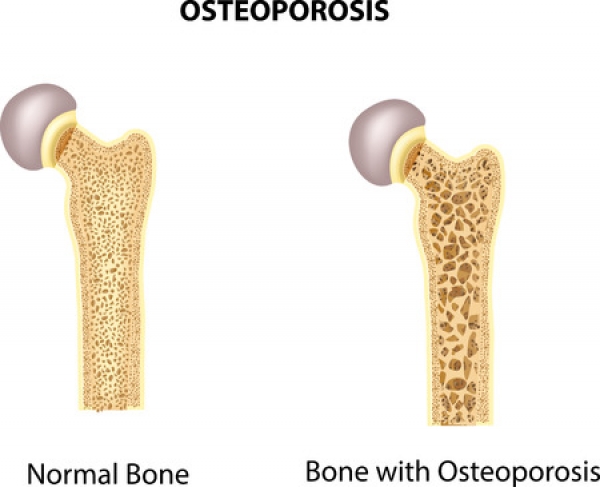Osteoporosis causes a bone fracture in one out of every two women and one out of every four men over the age of 50. Since May is National Osteoporosis Month, we at Superior Foot & Ankle Care Center think this is a good time to talk about this disease, which can have a big impact on the health of your feet.
Although stress fractures can occur due to trauma, accidents or overuse from an exercise or sport, they can also be the sign of weak bones.
What Causes Osteoporosis
Osteoporosis occurs when you lose too much bone, make too little bone or both. Many patients don’t realize that bone is living tissue that is constantly being torn down and built up. There are many conditions and factors that can result in loss of bone strength. These include:
- Age—your risk increases over the age of 50
- Sex—women have a higher risk, particularly post-menopausal women
- Ethnicity—Latinos, Asian Americans and African Americans are more at risk
- Disease—osteoporosis is often associated with other disease, such as diabetes, lupus and rheumatoid arthritis
- Family history of osteoporosis
If you are experiencing symptoms such as pain, tenderness, swelling, bruising or difficulty bearing weight on the affected foot, it’s important that you not put off getting these symptoms evaluated. Make an appointment at our Long Beach office so that our podiatrists, Dr. Victoria M. Foley or Dr. Constance Ornelas can examine your foot and diagnose the problem and its cause. The foot doctor can help determine your personal risk for osteoporosis and whether or not bone density or other tests should be ordered at this time.
Making Choices for Healthy Bones
Fortunately, there are many ways you can help increase bone strength and lower your risk for fractures, such as:
- Get enough calcium—know how much you should be getting each day and increase your intake of s of yogurt, milk, cheese, leafy greens and other foods that are high in this nutrient. Be sure to also get adequate amounts of vitamin D as this is essential for body to absorb calcium properly.
- Exercise regularly—weight-bearing and muscle strengthening build stronger bones. In general, being active can reduce your risk for decreased bone strength.
- Don’t smoke.
- Fall-proof your home inside and out.
Being educated is your best defense against osteoporosis. Have more questions? Contact us at: (562) 420-9800.

